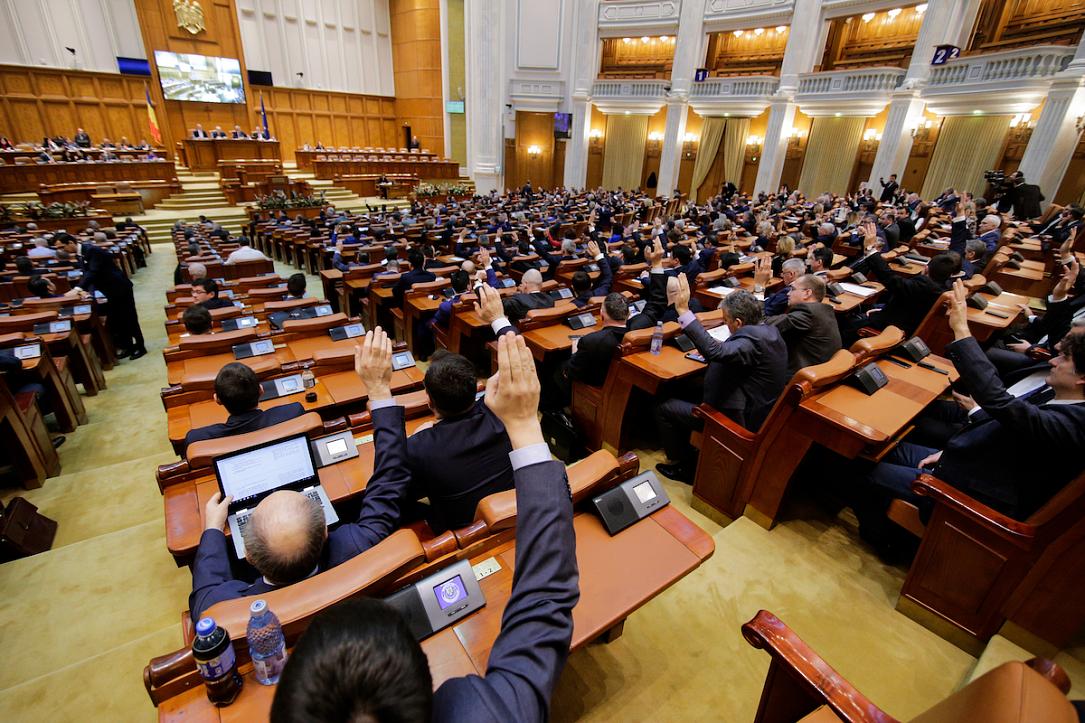Romania's Parliament passes quarantine and isolation law



The Senate passed on Thursday, July 16, the law concerning the public health measures that can be taken in the context of the coronavirus pandemic.
The law passed with 115 votes in favor, eight against, and three abstentions, Mediafax reported.
The Senate was the deciding chamber in this case. It can be challenged at the Constitutional Court within two days. The law will then go to president Klaus Iohannis for promulgation. It comes into force three days after being published in the Official Monitor.
The Chamber of Deputies started to debate, on July 9, the draft law on quarantine and isolation, which the Government adopted on July 6, following the recommendations of the Constitutional Court (CCR).
The quarantine and isolation measures imposed by the Romanian Government through an order signed by the minister of health were temporarily suspended, following the decision of unconstitutionality pronounced by the Romanian Constitutional Court on June 26.
Separately, the Covid-19 patients with no symptoms can't be retained in hospitals, as an effect of the same ruling. As a result, most of the patients in this situation asked to be released home, where there is no legal mechanism to keep them from spreading the epidemic.
The law reached the Senate at the beginning of the week.
According to it, isolation measures can be introduced for patients displaying symptoms but also for asymptomatic ones, Mediafax reported.
The illnesses for which isolation measures can be adopted, and the main hospitals treating contagious patients are established through a Government decision.
Patients can be isolated at their residence, at another location they declare, or in hospitals.
The bill stipulates that isolation measures need to be adopted for a limited period, indiscriminately and "in accordance with the situation determining them."
Isolation needs to have the purpose of preventing the spread of a disease that is dangerous for a person's health or public health. It should not result in an "unbalance between the need to protect public health and the imperative of respecting a person's freedom."
The isolation is first introduced for 48 hours, during which doctors can assess the patients and establish the risk of contagious and infectious diseases being transmitted. If the risk persists, doctors can recommend extending the isolation period in a hospital or, depending on every case, at the patient's residence.
Home isolation cannot be chosen if the hospital isolation is needed, as established through an assessment of the pathogen agent, the way of transmission, and the transmission rate.
In the case of those who do not comply with the home isolation measures they consented on, doctors need to notify the county Public Health Departments (DSP), which can confirm or invalidate the doctor-recommended hospital isolation measures on a case-by-case basis. Those who do not follow the isolation and quarantine rules can receive sanctions.
People returning from countries with a high number of coronavirus cases need to quarantine at home. If this is not possible, they will be accommodated at venues offered by the public authorities.
In the case of children whose parents were diagnosed with the Covid-19 infection, the social assistance service is to monitor the situation and take measures concerning their care.
Other amendments to the law stipulate that the National Institute for Public Health (INSP) needs to communicate the number of new coronavirus cases separately from the ones that have been retested, Digi24.ro reported.
Furthermore, the Health Ministry needs to establish a body of volunteers for emergencies, which the state can rely on when needed.
At the same time, healthcare workers assigned to hospitals treating coronavirus patients will receive an additional 50% of their salary, a daily supplement of 2%, and free transport and accommodation in the locality they have been assigned to. They cannot be assigned to a locality for more than 30 days.
Romania added 777 coronavirus cases on July 16, the highest number of daily cases reported since the start of the pandemic.
(Photo: Cateyeperspective/ Dreamstime)
editor@romania-insider.com